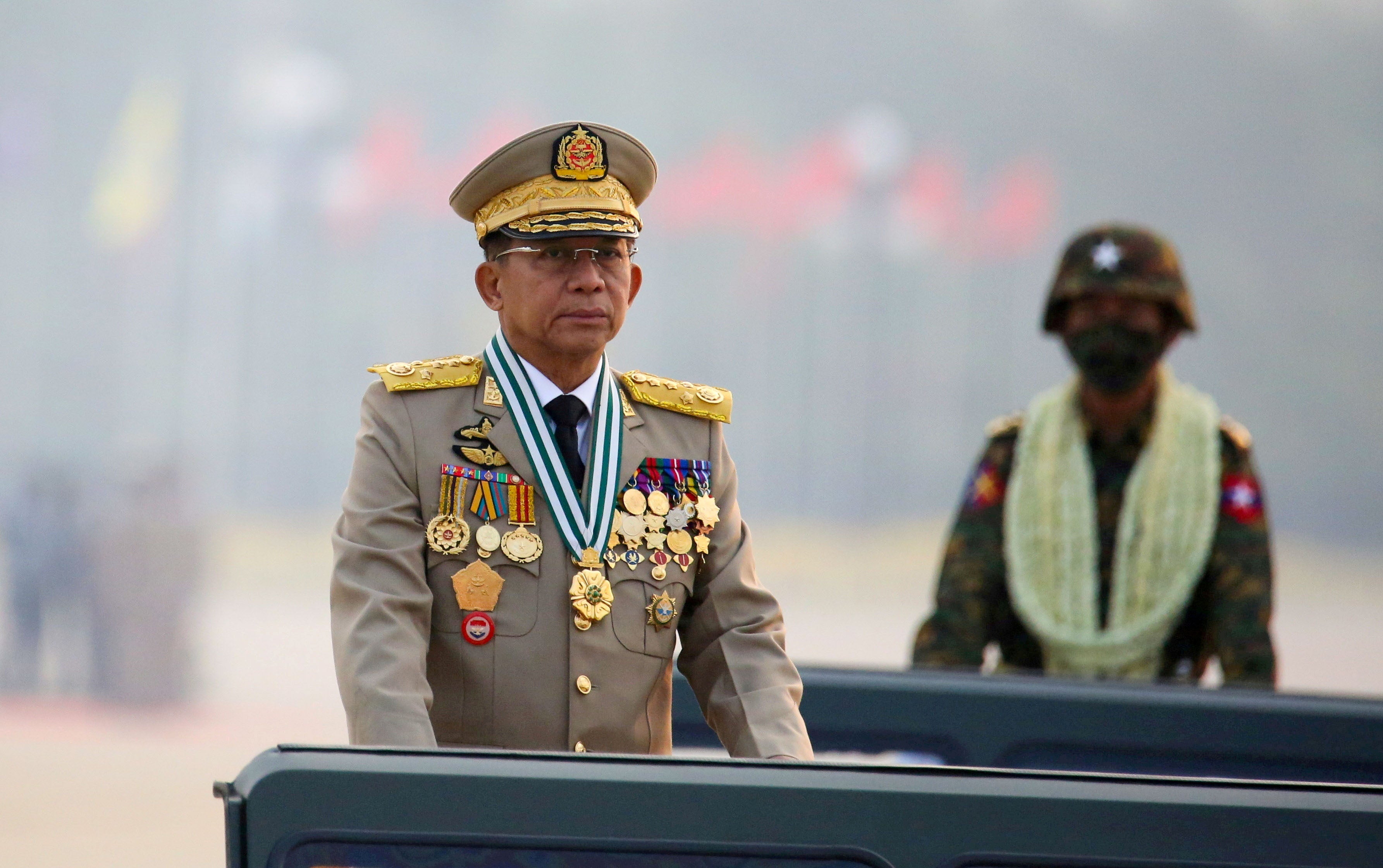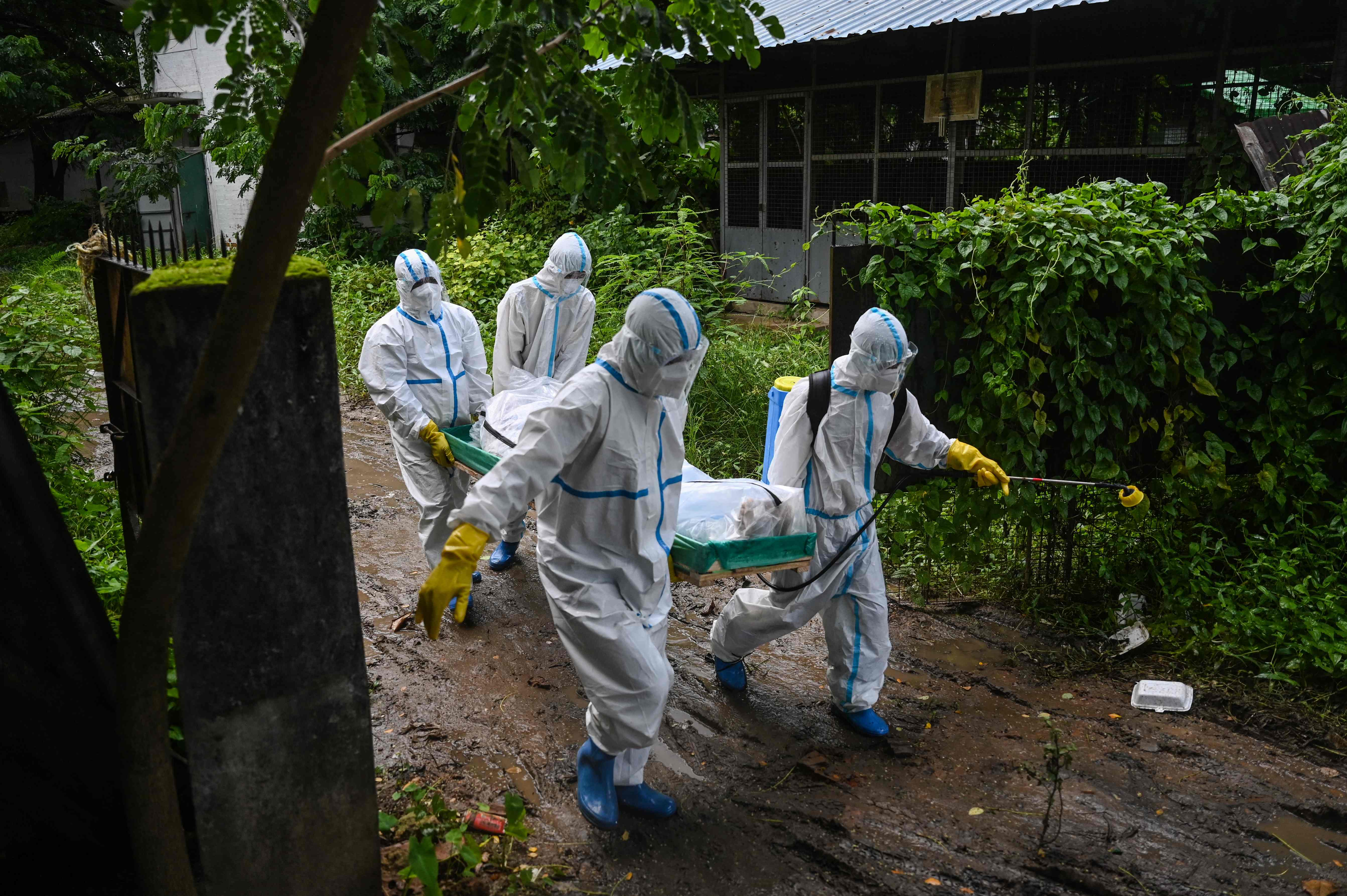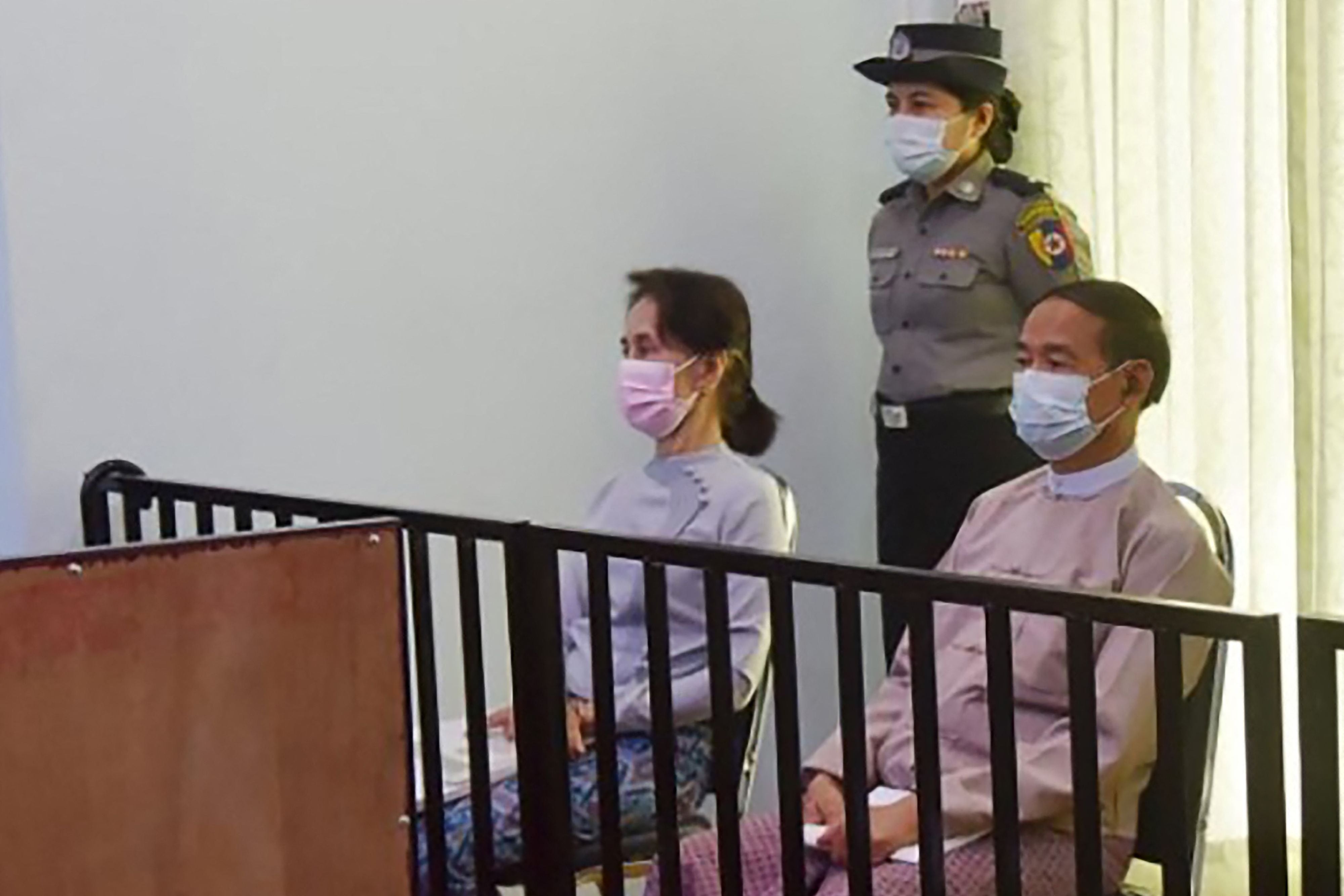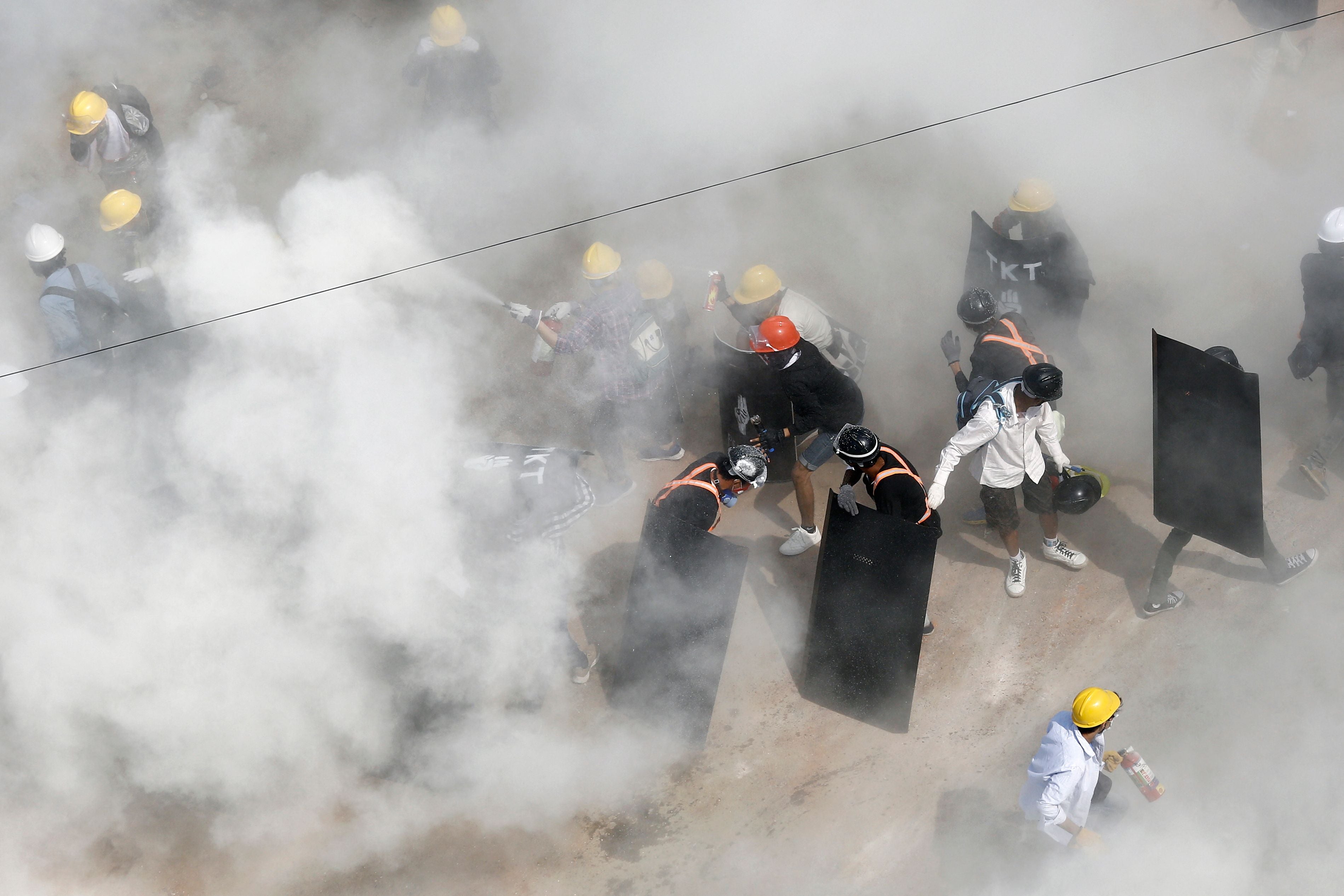Myanmar’s future: ASEAN tries negotiation as the military junta digs in
The Association of Southeast Asian Nations has deployed a new special envoy to mediate a solution to the Myanmar crisis, but their success rests on the whim of a Burmese general, writes Ben Dunant

Short, bespectacled and monotonous in his speech, Senior General Min Aung Hlaing might seem an unlikely despot. Yet the colourless general leading Myanmar’s military junta has brought the southeast Asian country to its deepest crisis since it gained independence from Britain more than 70 years ago in the rubble of the Second World War.
Before he launched his coup d’etat on 1 February this year, the country had just completed its second credible election in a row, after half a century of military dictatorship. Myanmar had also made an early start on Covid-19 inoculation – using vaccines from India – after managing earlier outbreaks of the virus without its threadbare healthcare system becoming overwhelmed.
Six months since Min Aung Hlaing’s takeover, however, Myanmar is undergoing a coronavirus catastrophe similar to India’s three months ago. With hospitals crippled by mass workplace strikes, and with many doctors forced into hiding or languishing in prison for defying the junta, severely ill people are suffocating at home while relatives and charity workers scramble for scarce oxygen canisters.

Meanwhile, the economy is in freefall, with the World Bank predicting a doubling of poverty and an 18 per cent plummet in GDP in the fiscal year. Armed conflict has also spread from Myanmar’s mountainous borders – home to protracted ethnic insurgencies – to the arid central plains, which have not seen war in decades. Even in the big cities, shadowy guerrilla groups are bombing government offices and gunning down the military regime’s officials and collaborators almost daily.
In a televised address to the nation on 1 August, Min Aung Hlaing was eager to say that none of this was his fault. The junta chief, who that day also granted himself the largely superfluous title of prime minister, attributed the current devastating Covid-19 outbreak to a conspiracy against his rule: “using Covid-19 as a tool of bioterrorism”. He said the anti-coup protests that started in February, with hundreds of thousands of ordinary Burmese taking peacefully to the streets in towns and villages across Myanmar, were “designed to spark the infection of variant Covid-19 species”.
Min Aung Hlaing also defended the military’s brutal suppression of this nationwide uprising, which civil society group the Assistance Association for Political Prisoners says has killed more than 900 civilians, as a lawful response to “anarchic protests” and “armed attacks” incited by “extremists” belonging to the National League for Democracy (NLD). This is the party of deposed leader Aung San Suu Kyi, which won a landslide in the November 2020 election, like in the 2015 vote before it.
But the general’s speech was not just about deflecting blame for the death and destruction so far. It was also about where the junta intends to go from here. The regime would hold “free and fair” elections by August 2023, and then “hand over state duties to the winning party”, he said.
The two-year wait was justified, he claimed, by the constitution, which allows a limited number of extensions to a state of emergency. It would also allow authorities to correct flaws in the electoral system, which the military says enabled the NLD to commit rampant fraud in the 2020 election. Although the fraud allegations were not backed by any of the international observer missions, they were the main justification for the coup – amounting, in Min Aung Hlaing’s words, to an attempt to “seize state power forcefully”.

His announcement followed the junta-stacked election commission’s formal annulment on 26 July of the 2020 results – a move senior NLD member Aung Kyi Nyunt called “an insult to the people”. Moreover, the election commission in May mooted that the NLD could be outlawed after fraud investigations were concluded. The party’s top leaders, including Aung San Suu Kyi, are facing a raft of criminal charges – ranging from corruption and sharing state secrets to violating coronavirus restrictions while campaigning – that could keep them imprisoned for the rest of their lives.
The declaring of fresh elections, therefore, hardly amounts to a concession – even in the form of a cynical ploy aimed at alleviating international pressure. Swedish journalist and long-time Myanmar watcher Bertil Linter told local outlet The Irrawaddy that it was “criminally naive” to believe the military would hand over power to democratically elected civilians.
But while Min Aung Hlaing’s use of the phrase “free and fair” might appear to mean little, in some crucial respects the general means what he says. His mission, outlined in his 1 August speech, was to deliver a “discipline-flourishing democratic system”.
The coupling of democracy with discipline has long been central to the military’s vision for Myanmar, and to its own perceived role as the custodian of a country whose ethnic divisions make it ripe for disintegration. It was articulated in the previous junta’s 2003 Roadmap to Discipline-flourishing Democracy, the blueprint for the country’s post-2010 democratic reforms and opening-up to the world, which prompted two visits by the then US president Barack Obama and a flurry of foreign investment.
[The NLD’s] even greater win in 2020 must have felt like the last straw for Min Aung Hlaing, proving that the constitution was not working as it should
The military has never defined “discipline-flourishing”, but it perhaps came closest to spelling out its distrust of political freedom in a 2015 election campaign video for military-backed president Thein Sein. The four-minute video, uploaded to Facebook during the week of the vote, contrasted footage of violent Middle Eastern mobs during the Arab spring with scenes of peaceful development in Myanmar. As digital blood washes down the screen in the style of a student horror film, a line of text reads: “Only when peace prevails will democratisation be implemented.”
Although the February coup appeared to signal the end of a decade-long reform process, for the military it was a course-correction. Min Aung Hlaing’s recent speech was in effect a declaration that Myanmar was firmly back on the “roadmap”, which requires the military’s guiding hand if Myanmar is to avoid descending into Arab-spring-style chaos.

Repeated landslide electoral victories by Aung San Suu Kyi’s NLD had overridden the guardrails that the military wrote into the 2008 constitution, which was based on the 2003 roadmap: namely, continued military control of several key ministries, and a guaranteed quarter of all parliamentary seats for unelected military officers. These military MPs would have been able to team up with military-backed parties to form the government, but in 2015 and 2020 these parties did so poorly that they failed to win the required 25 percent of seats, allowing the NLD to capture the presidency.
Burmese commentator Sith Aung Myint wrote in Yangon-based Frontier Myanmar magazine: “The 2008 constitution was written to allow military generals, serving or retired, to hold power from one administration to the next”, but the NLD’s “even greater win in 2020 must have felt like the last straw for Min Aung Hlaing, proving that the constitution was not working as it should”.
Min Aung Hlaing appears to hope that the elimination of the NLD and Aung San Suu Kyi from politics will restore discipline to Myanmar’s democracy. But the irony is that his coup has brought the country closer to the bloodshed and disorder of a Middle Eastern conflict than the tumult of multi-party politics was ever capable of doing.
While Min Aung Hlaing’s speech marked his cold determination, resistance is likely to continue, with people seeing no future under military rule. ASEAN’s envoy, in search of a middle ground, will be met with a yawning chasm.






Join our commenting forum
Join thought-provoking conversations, follow other Independent readers and see their replies
Comments